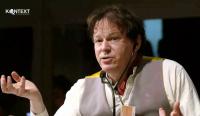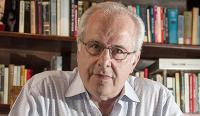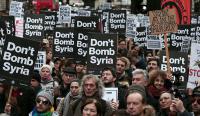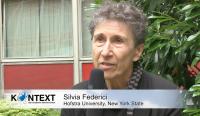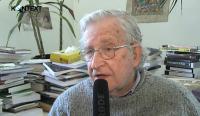Rojava or The Art of Transition in a Collapsing Civilization
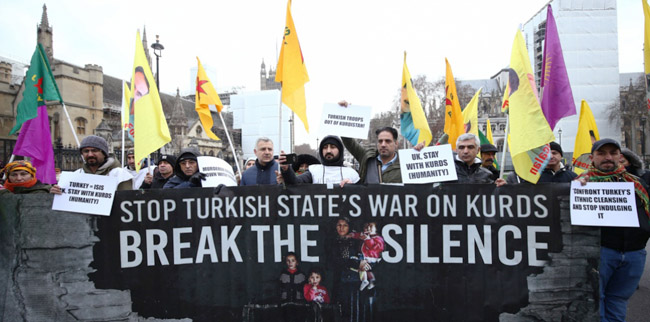
The achievements of the Kurdish liberation movement in Northern Syria are not only highly important for the freedom struggles in this region, but also for the transition period that we are facing on a global scale. 500 years of violent expansion of the capitalist Megamachine have brought both societies and the planet to the brink of collapse.1 The Capitalocene has led into the sixth mass species extinction in the history of the Earth. We are loosing one per cent of our fertile soil each year. The UN Food and Agriculture Organization predicts that the world has only 60 harvests left on this path. However, this seems still over-optimistic, given that biodiversity loss and climate chaos are proceeding at a much faster rate than even the grimmest forecasts considered possible ten years ago. When the glaciers of the Himalaya will be gone, up to 1.5 billion people in Asia, who depend on the melting water, will be bereft of their livelihoods. The same is true for coastal communities devastated by rising sea levels and storm surges, or for large parts of the Middle East and Africa that risk to become uninhabitable in the coming decades due to extreme heat and drought. All this is happening on a planet, where 42 men possess as much as the poorest half of world population. This grotesque inequality does not only stoke social and political chaos, but also causes extreme economic instability to the point of systemic breakdown.
When we combine this short survey with the almost complete refusal of global elites to even acknowledge that there is a systemic crisis – let alone to act accordingly - we are facing a perfect storm. What could lie ahead of us in the coming decades is nothing short of the collapse of a civilization. However, as James C. Scott pointed out, the breakdown of a civilization is not necessarily equivalent to the annihilation of the people involved. Failing systems break up into smaller, often less hierarchical forms of organization.2 Sometimes systemic collapse can even lead to more freedom and more well-being for the majority, as was the case when the Western Roman Empire disintegrated and both slavery and the ravaging mercenary armies largely disappeared from Europe for centuries.
The difference today, however, is that the current system is much more dangerous than the Roman Empire was. It is, indeed, by far the most violent and dangerous civilization that has ever existed since the first structures of power and domination emerged in Mesopotamia 5000 years ago. And it might turn out to be even more destructive when breaking apart. Western civilization has bestowed on us 15,000 nuclear warheads and 600 million small arms which could quickly turn against everybody. Furthermore, a globalized industrial society is much more vulnerable to deteriorating supply mechanisms due to economic or ecological disruptions than an agrarian society such as Rome’s. Therefore, today's transition strategies must not only deal with political and economic reorganization, but also with the question of how to respond to sudden system failures, supply bottlenecks and the spread of violence. For these reasons, learning from Rojava could turn out to be essential for survival. For people in Rojava have dealt with both anomic violence and the breakdown of supply chains in a remarkable way. Under the most extreme conditions, attacked by ISIS from one side and Turkey from the other, in the crossfire of almost a dozen local, regional, and geostrategic wars, the women and men of Western Kurdistan were able to create an island of self-determination and true democracy, which has become a beacon of hope for people all over the world. Cut off from global and inter-regional supply chains, they have started to build up an economy based on co-operatives and collective decision-making.
This is all the more amazing, as war tends to impose a militaristic, hyper-hierarchical logic on even the most emancipatory movements, squashing self-organization for the sake of military effectiveness. The historic examples for this are legion, reaching from the Russian Revolution to independence movements in the Global South and countless post-independence guerrillas. Even if the war was won, it was, in a sense, nonetheless lost, because the winner had become confusingly similar to his adversary. However, as in the case of the Zapatistas in Mexico, the people of Rojava have profoundly learned from this history. Inspired by the writings of Abdullah Öcalan (who, in turn, draws from feminist theory, Murray Bookchin, Immanuel Wallerstein and others), they have begun to challenge not only a specific formation of power, such as capitalism or a particular state, but the roots of domination.
This is all the more important, as capitalism is not the only system that subjugates people and nature. When it breaks apart, locally or globally, new power structures may emerge that can turn out to be as bad or even worse than the previous one, using different means to the same end, which is maintaining privileges, wealth and power for a few. Practicing the art of transition in a collapsing civilization implies to anticipate which new forms of domination can arise in the upheaval (or which older forms might be revived) and to challenge them at the root.
Challenging the Four Tyrannies
All systems of domination in the past 5000 years have been based on four pillars of power, which I call the Four Tyrannies.3 Each of these is challenged by the Kurdish project of democratic confederalism. The first tyranny is physical power. It is found in patriarchic family structures, slavery, mafias and warlord systems, and, in its most consolidated form, in states (which sometimes emerge from mafias and warlord systems). In the modern era, the main function of the state has been to make sure that the wheelwork of capital accumulation works smoothly, by conquering new territories, crushing resistance movements, forcing people into wage labour or slavery, protecting trade routes, asserting property rights for the wealthy and heavily subsidizing corporations, today in the order of trillions of dollars each year. Without states doing all of this, capitalism could not work for a minute. A lot of leftist movements have dreamed of conquering the state in order to change its functions and eventually even dissolve it. However, when they succeeded in taking over power, the inner logic of state apparatuses usually overwhelmed them, leading to different variations of George Orwell’s Animal Farm.
One of the most momentous decisions in the history of the Kurdish movement was to abandon the goal of creating a state. Instead of focussing on this single objective and subordinating all other struggles to this goal as mere “side contradictions”, a much more holistic approach could be pursued, simultaneously addressing different forms of domination which arise both from outside and from inside the community. The issue of overcoming patriarchic structures, for example, could not be postponed anymore to the days “after the revolution”, but was to be confronted at all levels right away. This was also key to prevent a militaristic logic to impose itself on society.
Overcoming Structural Violence
The second tyranny, or pillar of domination, is structural violence. It has manifested itself since the time of the first Mesopotamian city states in the form of land privatization and concentration, in debt relationships, in the concept of private property, in written law codifying and cementing inequality, and finally in the institutions of modern capitalism. Today, the endless accumulation of capital, which is the determining principle of the Megamachine, is institutionalized primarily in the biggest 500 corporations that control 40 per cent of world GDP. These institutions are monstrous not only for their size and power but also for their inner logic. Their only rationale, enshrined in their legal construction, is to turn the world of living beings, of matter, and even of human relationships into commodities and finally into chains of numbers on a bank account. Death by abstraction is the vanishing point of their operation—a moonlike planet with a lonely computer screen displaying endless rows of zeros.
The Kurdish movement challenges all these forms of structural violence at their root. Hundreds of co-operatives have been created: in textile production, food processing and other sectors, with private property being partly replaced by commons-based principles. Free education and health care structures are developed. The goal is to establish an economy that is based on needs, not on profits, permanent growth and accumulation.
Unravelling the Myths of Civilization and Modernity
The third tyranny, challenged by the people of Rojava, is ideological power which is to legitimize and “naturalize” the physical and structural violence on which every system of domination is based. This layer of domination, which can manifest itself in different ideological systems such as authoritarian religion, scientism or Western universalism, has historically been institutionalized in many different spheres, including architecture, the arts, schools, universities, and the media. When the first states consolidated in Mesopotamia, the elites developed a mythology that both mirrored and legitimized their power. The metaphysical universe became dominated by a ruling male god who, like an earthly ruler, disposed of a kingdom and a throne, whose will was obeyed ("thy will be done"), and who decided about life and death. When the zenith of worldly dominion was finally reached in the Roman Empire, this culminated in the notion of an omnipotent God as found in Christianity and other monotheistic religions.
Later, in early capitalist modernity, the one and only God was key to justify the subjugation and extermination of the colonized peoples, whose souls were to be saved even if they died in the process. With the “age of enlightenment” the vesture of this missionary ideology changed, but the substance remained the same. Now, it was “civilization” that had to be brought to the “savages”, as Christianity to the pagans. Later, other concepts served the same goal, including “progress”, “development”, and, today, “Western values”.
The Kurdish liberation movement challenges this mythology on two different levels. First of all, the Myth of Civilization is deconstructed. We all have this image in our heads that the so-called “stone age” (which after all makes up 95 per cent of human history) was marked by barbarians cluelessly running around, slaughtering each other with clubs and dying at the age of 30. Civilization then ended this age of misery and barbarism, restraining violence, bestowing culture on the primitives and lifting mankind to a higher living standard. Historically, however, all of this is dead wrong. According to anthropologic and historical evidence, Neolithic cultures in the Middle East were less hierarchic, less violent and much more equal in terms of both gender and economic relations than the state-based cultures of the following eras.4 People were even much more well nourished. Civilization – in the sense of hierarchically organized military states – gave us ziggurats, pyramids and the written word, but at the same time war, oppression, slavery, and eventually ecocide.
The second myth unravelled by the Kurdish movement—the Myth of Modernity (or the West)—has a similar structure. According to this narrative, modernity with its shining light led us out of the dark Middle Ages 500 years ago and still continues on this path. However, all the gruesome things we are usually told were part of the Middle Ages, such as the inquisition, torture, draconian punishments and witch hunts, reached their climaxes in the capitalist era, not in the Middle Ages. In fact, these measures were part of the strategies by the new ruling classes to crush resistance movements.5 At the same time, European expansion overseas led to the annihilation of non-Western cultures and to a chain of genocides. Since then, capitalist modernity has unleashed an unprecedented spiral of violence and exploitation around the globe that may well lead to the destruction of humanity and even the planet. Challenging the mythology of both civilization and modernity is key to create a new narrative for a post-capitalist society that does not fall back into older forms of domination. However, as Kurdish activists stress, this does mean to reject everything that has been invented in the course of the past 5000 or 500 years. The strength the Kurdish movement is that they combine thorough, radical analysis with down-to-earth pragmatism.
The Tyranny of Linear Thinking
In the course of history, the first three tyrannies have created yet another one: the tyranny of linear thinking. Linear thinking is based on the assumption that the world functions according to predictable laws of cause and effect and is therefore controllable. As in antiquity the concept of a ruling God was shaped according to the model of earthly dominion, in the modern era the ruling God served as a blueprint for the modern man who tamed the Earth through science and technology. In both the theological and technocratic versions of omnipotence, we find the idea that nature—including human nature—can and must be controlled. Just as the king commands his subjects, and God his creatures, the engineer likewise commands nature to obey his will.
However, living systems do not work according to the logic of order and command. They are hyper-complex and non-linear by nature. Each intervention can cause unpredictable chain reactions. This is true for both human societies and non-human nature. When I try, for example, to control a river in a linear way by shoring up the banks and damming the flow, it may one day react in an unexpected way and suddenly overflow with unprecedented flooding. The application of linear thinking to living systems has left a trail of devastation across the planet. Industrial agriculture is a case in point. It is based on linear concepts of maximizing output and profit, killing pests, and pumping up ground water. The results are depleted soils and water resources, shrinking yields and multi-resistant pests.
The Kurdish revolutionary movement has begun to tackle this fourth tyranny both intellectually and in practice. In spite of the enormous difficulties posed by war and economic isolation, agricultural co-operative have started efforts to convert industrial farming to ecologically sound production methods which are based on the idea of cooperating with complex living systems instead of trying to dominate them.
Contradictions
Of course, the project of transition in Rojava is full of contradictions. Oil drilling, for example, continues in the region, although the movement aims at an ecological transition. Oil is still needed both for internal use and as an export commodity in order to pay for essential import goods. The issue of statehood is another example. Trying not to be a state proves almost impossible when surrounded by states. Not only because many of these states either try to destroy or exploit Rojava, but also because a self-administered region needs to have some sort of relationship with states in order to allow for a minimum of exchange of people and goods across borders. The current solution found to that problem is what David Graber called a “dual power structure”.6 It has some sort of central administration that is able to make agreements with states; however, these agencies have no physical power over the population. Police forces are controlled by local councils, not by the central administration. Thus, two parallel structures are established, with the councils being not merely at the base of a pyramid, but permeating all levels of society.
Another contradiction is that the Kurdish autonomy movement has—although challenging all forms of domination, especially patriarchy¬—a leader, who also happens to be a man: Abdullah Öcalan. However, without the writings of Öcalan as a point of reference, it would have been very difficult to develop such a coherent strategy and practice as in Kurdistan. A lesson to learn from all of this is that there are no solutions without contradictions in the world as it is. Every solution has to emerge from, respond to and be adapted to local circumstances and traditions. There is no such thing as “purity” in this process.
Defending Rojava
The Kurdish autonomy project in Rojava is in acute danger. After the brutal invasion of Afrin by Turkish troops and the subsequent “ethnic cleansing” in early 2018, more Turkish assaults are looming. Western governments have been and still are furnishing Turkey with weapons that are used against the Kurds, for example German Leopard tanks and British helicopters. At the same time, these same governments are preventing the troops of the YPG—which defeated ISIS—from getting the weapons necessary to defend the Kurdish population from a possible genocide by Turkish high-tech forces and their Islamist henchmen. In this situation, international support for Rojava is crucial. Further arms transfers to Turkey and the continuing maintenance of these weapons by NATO must be stopped. Western governments have to be pressured not to look the other way, when Turkey will intrude into Rojava again. If borders, territory and human rights are as sacred as Western governments constantly claim, then any new Turkish aggression should be met with fierce opposition and sanctions. Defending Rojava is defending the hope for a liveable future on a planet that desperately needs hope.
This text was also published in the book "Building Free Life. Dialogues with Öcalan" (PM Press 2020).
Notes
1: The term “Megamachine” was coined by Lewis Mumford in his book The Myth of the Machine (New York 1967/1979). See also: Fabian Scheidler: The End of the Megamachine. A Brief History of a Failing Civilization, London 2019 (publication in preparation).
2: See James C. Scott: Against the Grain. A Deep History of the Earliest States, New Haven 2017
3: Fabian Scheidler: The End of the Megamachine. A Brief History of a Failing Civilization, London 2019 (publication in preparation).
4: James C. Scott: Against the Grain. A Deep History of the Earliest States, New Haven 2017
5: See Silvia Federici: Caliban and the Witch. Women, the Body and Primitive Accumulation, New York 2004.
6: David Graeber: From Occupy Wall Street to the Revolution in Rojava, speech at the conference “Challenging Capitalist Modernity“ in Hamburg, April 2017, documented on Kontext TV: www.kontext-tv.de/en/node/2861
